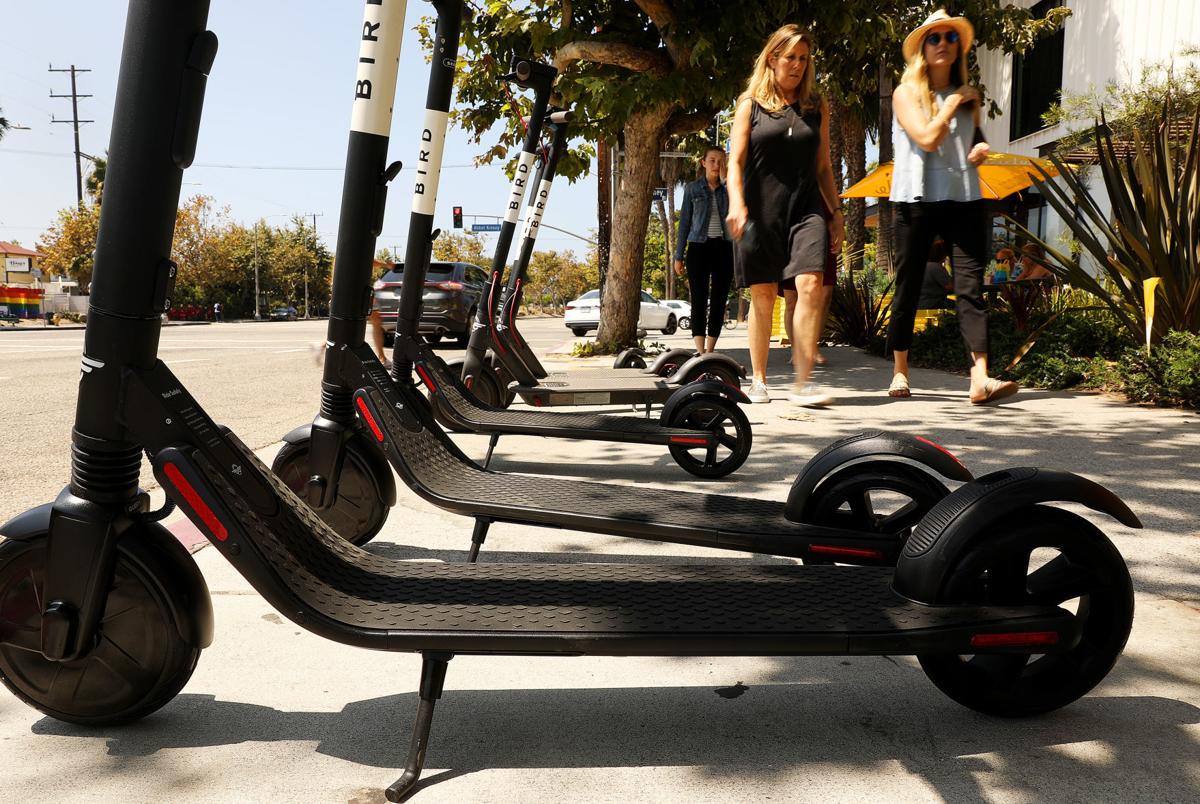Up to 2,000 dockless electric scooters could show up on Tucson streets as early as this spring, but it won’t come cheap for the companies looking to set up shop.
The Tucson City Council will consider an elaborate proposal from city staff to allow scooters from companies like Bird and Lime to operate if they agree to a set of conditions and pay the city up to $428,000 annually.
Conditions include not leaving the controversial devices too close to street corners, in public parks or blocking sidewalks, offering helmets “periodically and upon request” as well as carrying insurance for each e-scooter operating in the city limits.
With a discussion set for Tuesday afternoon, at least one councilman doesn’t think the proposal is worth the risk.
“My biggest concern isn’t the money,” Councilman Steve Kozachik said last week. “There is no safe place to ride these things.”
With his ward covering Fourth Avenue, downtown Tucson and the University of Arizona campus, Kozachik argues that narrow streets and sidewalks in those areas are unsuitable for e-scooters.
Beyond that, Kozachik also says he believes the city should be asking for more money. He notes that while Tucson is asking for $15,000 for its annual permit fee for each company looking to operate in the city limits, San Francisco requires $25,000 for each license.
And noting that the city is set up to offer licenses on a first-come, first-served basis, Kozachik said the application process should be more rigorous and competitive. A total of four companies will be allowed to operate under the pilot program that has been proposed by city staff.
“We should choose the best candidate, not the first in line,” he said.
Kozachik said he hopes to persuade his colleagues to scrap the current proposal and have staff come up with a better plan.
Councilman Paul Durham is cautiously optimistic that the current proposal is a good solution, saying the city is following in the footsteps of other communities that have successfully managed e-scooters.
Durham said the staff has gone to great lengths to address issues that have plagued other cities, mainly where devices are distributed to users.
The city has incentives for companies that put e-scooters near transit stops, offering an alternative to walking home from the bus stop.
“It addresses the first-mile and the last-mile issue,” Durham said.
He concedes that safety is an issue, but city officials will be monitoring the problem as a part of the six-month pilot program.
Durham is optimistic the proposal will pass on Tuesday.





